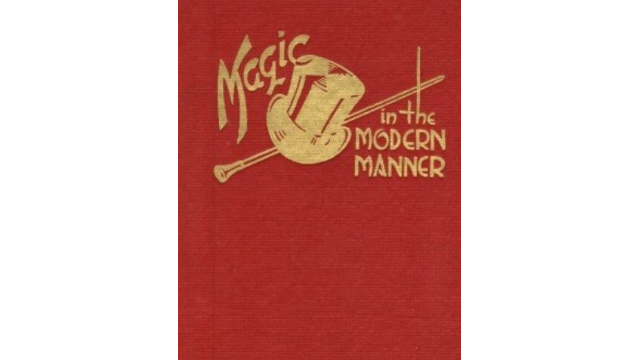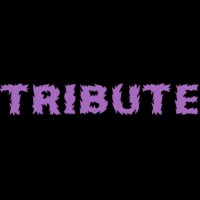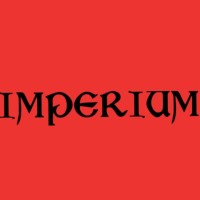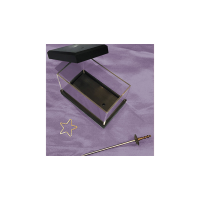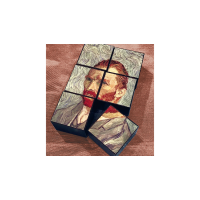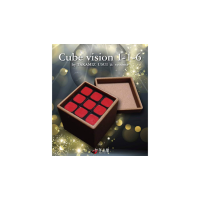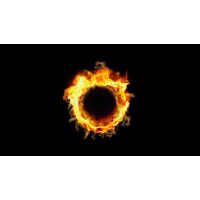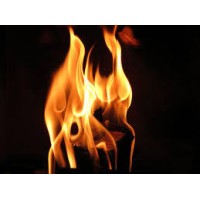Magic in the Modern Manner by Orville Wayne Meyer
- Product Code: #t90809
- Reward Points: 25
- Availability: In Stock
- $45.00
-
$5.99
- Price in reward points: 599
This is a work most will not be familiar with. Many will dismiss it with 'another old magic book'. But those in the know have carefully studied it and hold it dear as one of the most valuable books for a working professional magician.
It is the original and the only one of four places where Annemann's bullet catch is described, because it was Orville Meyer who supplied Annemann with the method. All the three other places where this is described are out of print and hard to impossible to find.
And now this lost Orville Meyer gem has been made even more valuable by extensive annotations and a new introduction by pro-magician and historian Ben Robinson. Ben Robinson was in close contact with Orville Meyer. Ben has performed the bullet catch himself and has written the seminal work on bullet catching Twelve Have Died which is long out of print. He is therefore the perfect person to read between the lines and interpret this important work for us.
Not since Twelve Have Died has Ben Robinson been so explicit on the major work of bullet catching. If you want to know how Annemann did it, which you can see below, then this ebook is your sure answer. Since Twelve Have Died has been out of print since 1990, this is your best bet at this carefully guarded information.
Meyer's bullet catch is but one hidden treasure in this ebook. There is an extensive section on the Chinese Linking Rings and several other classics such as Cups and Balls and the Egg Bag are carefully covered. You will find novel routines like Think! Ink! or the Bathing Girl Illusion next to a section of mental mysteries.
Paul Fleming wrote:
This is a collection of tricks originated by the author, plus a few items that have been contributed by other magicians. Some of these feats have already appeared in magic books or magazines, but many are now published for the first time.
The book is divided into eight chapters. Chapter 1 (43 pages) includes two Four-Ace effects, Restless Cards ("a vast improvement over Vernon's Follow the Leader and Ralph W. Hull's Birds of a Feather," says the author), Paul Fox's Climax to the New Torn and Restored Card Trick, and two other card feats. Chapter 2 (30 pages) consists of ten mental effects, all but one of which (Pay Day, a clever trick requiring no skill except a minimum of memorization) are performed with playing cards. Included in the ten are three telephone tests, a feat in "mental card-spelling," an improved version of Zens' Miracle Trick, and two effects by Eddie Clever.
Chapter 3 (Novel Magic, 26 pages) deals with miscellaneous magic, and explains two chemical tricks, Think Ink! and Passe-Passe Ink; the not very mysterious Magical Strip Tease; a version of Fred Culpitt's Bathing Girl Illusion; the Cosmic Blue Ray (making use of a Phantom Tube); a good routine, with patter, of The Chinese Wands; three sets of "poetical patter" (two for The Twentieth Century Handkerchief Trick, one for the Soft Soap routine), only one of which we regard as sufficiently clean and clever to be acceptable to a discriminating audience; and three other items of definitely minor importance. Chapter 4 (7 pages) explains two tricks for children's audiences: A version of The Egg Bag, with fairly bright patter; and Whereisit, a comedy torn-and-restored-card trick, in which the card finally appears on the back of a boy from the audience.
Chapter 5 (15 pages) is a detailed explanation of Catching a Bullet in the Teeth, an exhibition which we believe should be outlawed on at least five counts: (1) Because, like all tricks and illusions that are apparently hazardous to the performer or his assistants, it will be repulsive to sensitive members of an audience; (2) because in the most effective form described by the author it employs confederacy, and hence (despite Mr. Meyer's curious insistence that "the use of an assistant in the manner described is not cheating at all") is clearly dishonest and unethical; (3) because it has always been a dangerous trick, is particularly so in the Meyer-Annemann version, and through the years has taken much too heavy a toll of human life; and (4) because it is likely to inspire imitation by immature, impressionable witnesses of the feat, and thus lead to tragic consequences.
In Chapter 6 (49 pages), the author describes an excellent routine with The Linking Rings, based upon the examination of a half-dozen or more printed explanations of this ancient but still mysterious trick. We mention this detail because we believe firmly that Mr. Meyer's example is a sound one to follow in working up any trick or routine which a performer wishes to add to his repertoire. How can one possibly hope to know the best method of presentation unless one has studied those which are to be seen on the stage or found in books, or both? "To originate is carefully, patiently, and understandably to combine," said Edgar Allan Poe; and Mr. Meyer, by following this procedure, has originated a first-rate routine of thirty-nine "moves" which presumably meets his needs and will doubtless prove to the liking of many a reader - though the latter might devise one even more satisfactory to himself, if, like Orville Meyer, he consulted all available sources of information.
Chapter 7 (16 pages), dealing with The Cups and Balls, is a less thorough piece of research. Though the author admits indebtedness to Professor Hoffmann and Tom Osborne, he presents here his own adaptation of Dr. Daley's routine as explained in The Jinx, August, 1938. It is a good, interesting series of fourteen "passes"; but we cannot help wondering whether it would be precisely the same if the author had explored the literature on this trick as thoroughly as he examined the written word on The Linking Rings. We note incidentally that Mr. Meyer objects to the magical production of the balls from the wand, calling these "medieval 'wand extractions' before twentieth century audiences" psychologically wrong, but unfortunately not explaining wherein they are wrong! We should like to know. The Magical Index Key which makes up Chapter 8 (4 pages) may be of interest to owners of many large magic notebooks and scrapbooks who like to be able to locate any wanted item with ease.
Magic in the Modern Manner contains 170 pages of well written explanatory text, with 74 clear drawings. It is well printed, and is attractively bound in red cloth with goldstamping on both front and spine. It is a book that has much to recommend it. Few of those who are already acquainted with Orville Meyer's work will be willing to miss this collection of his ideas, and others will be the losers if they do.
1st edition 1949; original 184 pages; PDF 165 pages.
- Contents
- New Introduction
- Preface
- Introduction
- Chapter 1: Skillful Card Magic
- - Cutting The Aces
- - Restless Colors
- - Greatest Four Ace Trick
- - Correcting A Mistake
- - Do It Again
- - Paul Fox's Climax
- Chapter II: Mental Mysteries
- - Pay Day
- - A Telephone Trick
- - . . . And Another
- - Seventh Card Mystery
- - Encore
- - Multi-Mentality
- - He Only Thinks
- - Unseen
- - The New "Miracle" Effect
- - The Principle Of Majorities
- Chapter III: Novel Magic
- - Think! Ink!
- - Passe Passe Ink
- - Magical Strip Tease
- - Bathing Girl Illusion
- - The Cosmic Blue Ray
- - The Chinese Wands
- - Milk Bottle Levitation
- - Cokey Joe
- - Oh! Henry! – Or: Lux With Him
- - "Do As I Do" Paper Tear
- - The Traveling Salesman
- - Celebrity Telepathy
- Chapter IV: Children's Specials
- - The Egg Bag
- - ?? Whereisit ??
- Chapter V: Catching A Bullet In The Teeth
- Chapter VI: The Chinese Linking Rings
- - Floyd Brown's Bounce Link
- Chapter VII: The Cups And Balls
- - Cups And Balls Routine No. 2
- Chapter VIII: Magical Index Key
Reviews (0)
Related Products
Telepathy In Action by Orville Wayne Meyer
This is the classic work on waking hypnosis, the publication that inspired recent writings by Kross,..
$2.99 $5.94
Gerald Kein – Correcting Non-Organic Male Impotence
In this seminar, Jerry Cain explains how to use hypnotherapy to treat psychosomatic impotence.Discov..
$4.99 $25.00
Recommend
Knot Out by Vernet Magic
Effect: The magician shows very clearly a ribbon while the audience can see his hands empty. One ..
$1.99 $4.98
Magicians Of Asia - Bundle 2 by Uni, Leeng And Al Chen
At Vanishing Inc., we travel the world to find and share the very best magic with you. In this ne..
$2.99 $7.99
Tribute by Tony Jackson
Effect: Performer display three ordinary playing cards, 2 black-suited Kings, and 1 red-suited Qu..
$0.99 $3.98
The Phantom Rose by Tony Jackson
A green silk is displayed on both sides and hands are shown empty...suddenly a PERFECT silk roseb..
$1.99 $4.98
Imperium by Tony Jackson
The spectator chooses any card from any unprepared deck.The performer briefly shuffles the deck, ..
$0.99 $3.98
Bokor Mambo by Tony Jackson
Both hands are shown empty, front and back...and than, suddenly, a rose materializes on your comm..
$0.99 $3.98
Palantir Envelope by Tom Phoenix
The Palantir is a mystical seeing stone, used by the peoples of Middle Earth. .... And it's ..
$5.99 $8.98
Animal Tarot by The Other Brothers
A fantastic coincidence effect that is great for all ages. Animals, colors and a puzzl..
$1.69 $3.99
Sword Reward by Tenyo
A coin (with a hole in the center) and a ring are placed into a clear box. A mini sword is place ..
$1.99 $4.99
Instant Portrait by Tenyo
6 cubes each containing a section of an image magically come together to form one complete pictur..
$1.99 $4.99
Cube Vision 1-1-6 by Takamiz Usui
TAKAMIZ USUI's LATEST WORK The performer picks up a regular puzzle cube and a small on..
$2.99 $5.99
Magicians Of Asia Bundle 1 by Tae Sang, Collin And Rall
we travel the world to find and share the very best magic with you. In this new series, we are fe..
$1.99 $4.99
Spellbound by Tae Sang
Put bluntly, Tae Sang is one of the best coin magicians in the world. Hailing fr..
$2.99 $5.98
M.O.Ring V2 by Sultan Orazaly
Incredible vanish of a ring! Show a ring in your hand - close your fist - tap your fist with..
$2.99 $5.98
M.O.Phoenix by Sultan Orazaly
Fire tricks are some of the most beautiful magic tricks. Imagine you put pyro paper on a deck of ..
$1.99 $4.98
Fade Out by Sultan Orazaly
Fade Out by Sultan Orazaly Magic is a treasure worth finding. But in or..
$1.99 $5.98

